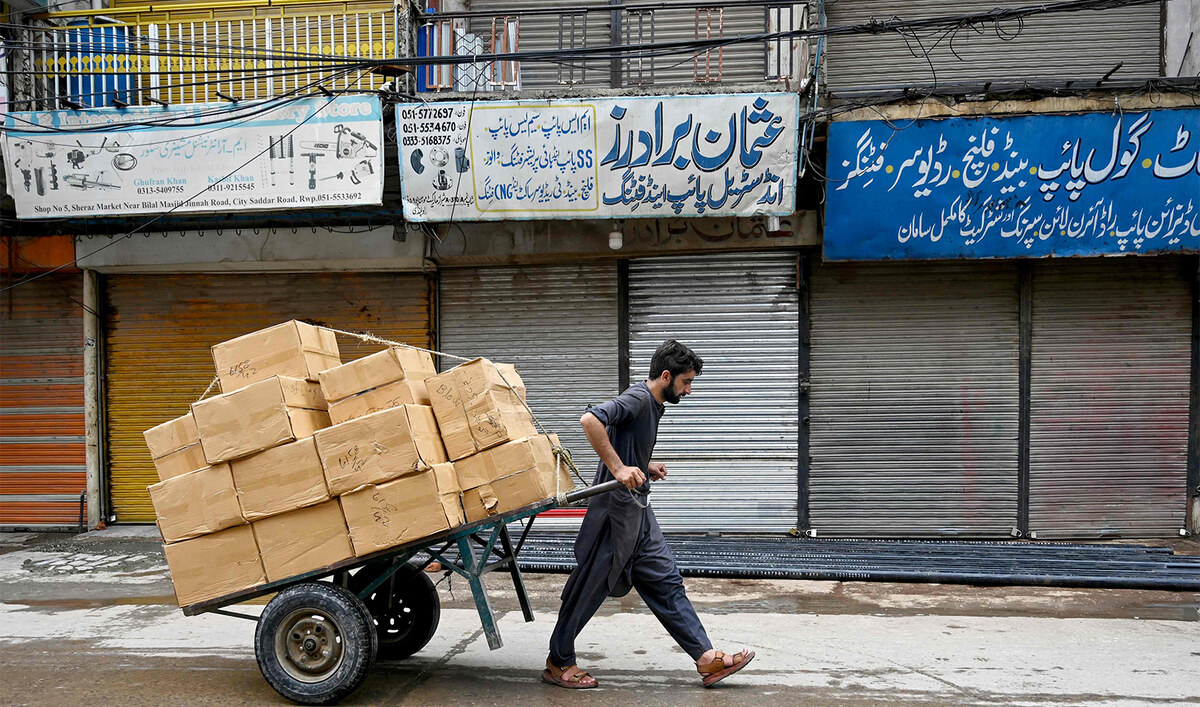KARACHI: Pakistan International Airlines (PIA) has initiated departmental action against an employee who is the brother of a former army chief over a “bogus” degree and warned him of termination if he fails to prove his credentials as valid, an airline spokesperson said on Sunday.
Javed Iqbal Bajwa, the brother of former army chief General (retired) Qamar Javed Bajwa, is a PIA deputy station manager in Birmingham, United Kingdom. A PIA source confirmed to Arab News that Bajwa is the brother of former army chief General Qamar Javed Bajwa, who retired in Nov. 2022 after completing a six-year tenure as head of Pakistan’s all-powerful army.
In a show-cause notice issued on July 30, PIA told Bajwa his high school certificate, bearing the roll number 25703, had been declared “bogus” by the Board of Intermediate and Secondary Education, Lahore, after the airline authorities sent the documents for verification. The airline has given Bajwa seven days to respond and explain why disciplinary action should not be initiated against him.
“Departmental action is being taken against Javed Iqbal Bajwa,” Abdullah Khan, a PIA spokesperson, told Arab News. “If his degree is found to be fraudulent, he will face disciplinary measures, including potential termination of employment.”
The airline noted that sharing false information about one’s name, age, educational or professional qualifications at the time of joining the service or during the service constituted “misconduct” under the PIA Employees Disciplinary Policy.
There has been no immediate comment from Bajwa on the development.
Marred by financial crises, the PIA suffered a major setback when a fake pilot license scandal emerged in June 2020, prompting the airline to ground a third of its 434 pilots on suspicion that they hold “dubious” licenses and flying certificates and unleashing concern from international safety and transport bodies.
The recent revelation of Bajwa’s fake degree comes as another blow to the loss-making airline, which the government is struggling to privatize this year.
News of action against Bajwa also comes amid unprecedented criticism of the army for its role in politics and society in Pakistan, where the military has ruled for nearly half of the country’s history. Even when not directly ruling after coups, the army is widely seen as the invisible guiding hand in politics. The current military regime says army intervention in politics is a thing of the past.
In recent years in particular, Pakistan’s army has come under intense criticism from followers of former prime minister Imran Khan, who blamed generals for siding with his rivals to oust him in a parliamentary no-trust vote in 2022. The army denies the charge.
PIA initiates departmental action against ex-army chief’s brother over ‘bogus’ degree
https://arab.news/nc3dg
PIA initiates departmental action against ex-army chief’s brother over ‘bogus’ degree

- Javed Iqbal Bajwa has been serving as PIA’s deputy station manager in Birmingham
- He is brother of Gen Qamar Javed Bajwa and is accused of faking high school certificate




















